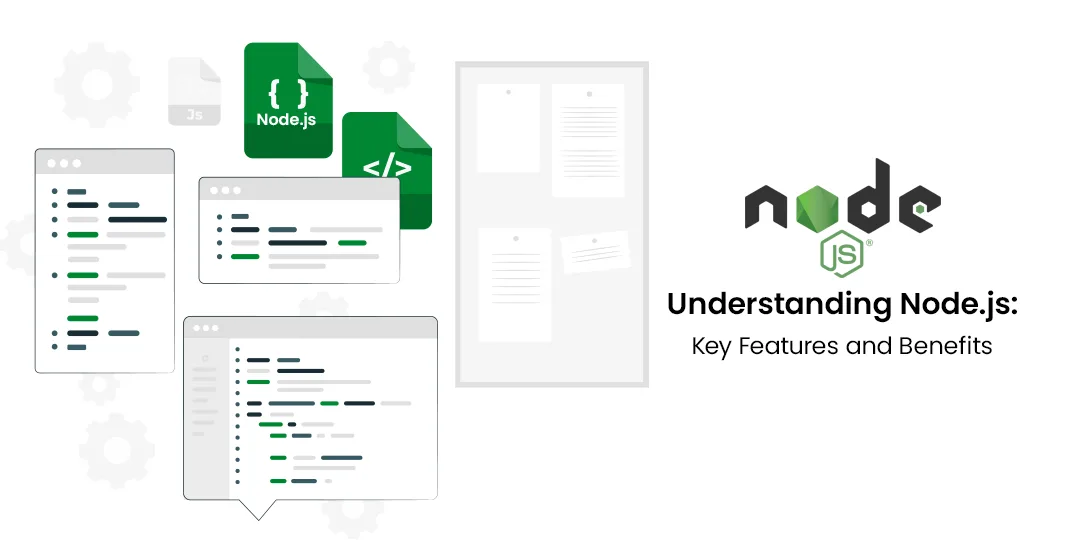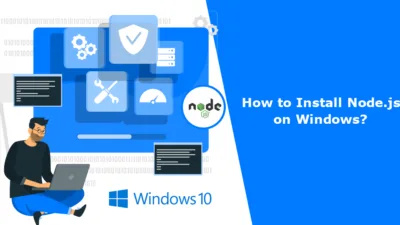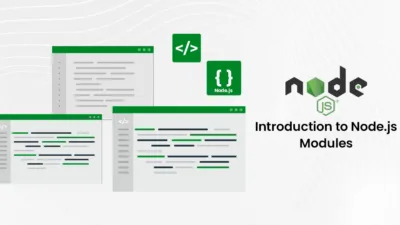In this tutorial, you will learn the basics of Node.js and its features.
Node.js has rapidly gained popularity as a powerful server-side JavaScript runtime, revolutionizing the landscape of web development. Many developers are increasingly choosing Node.js over traditional server-side technologies due to its unique set of advantages.
Let’s find out more about Node.js.
What is Node.js?
Node.js is an open-source, cross-platform, server-side JavaScript runtime environment built on Google’s V8 JavaScript engine. It allows developers to run JavaScript code outside of a web browser, enabling server-side scripting and the development of scalable, high-performance applications. Node.js has gained tremendous popularity among developers for its efficiency, flexibility, and vast ecosystem of modules and libraries.
Key Features of Node.js:
Asynchronous and Non-blocking I/O Model
Node.js utilizes a non-blocking I/O model that enables asynchronous processing. This means that the server can handle multiple requests all at once without waiting for previous operations to complete. Asynchronous programming in Node.js allows developers to write code that efficiently handles a large number of concurrent connections, hence making it perfect for real-time applications like chat servers, gaming platforms, and streaming services.
Single-threaded Event Loop
Node.js operates on a single-threaded event loop, which efficiently manages asynchronous I/O operations. While traditional server-side technologies use a thread for each client request, Node.js uses a single thread to handle multiple connections concurrently. This event-driven architecture significantly reduces memory usage and increases application performance.
Lightweight and Fast
Thanks to its underlying V8 JavaScript engine, Node.js boasts exceptional speed and performance. It compiles JavaScript code into machine code before execution, resulting in fast processing times. Additionally, the event-driven, non-blocking I/O model ensures that the server can efficiently handle a large number of concurrent connections without overburdening the system.
NPM (Node Package Manager)
Node.js comes bundled with NPM, a powerful package manager that allows developers to access a vast collection of open-source libraries and modules. NPM simplifies dependency management, making it effortless to incorporate third-party code into your projects and encouraging code reuse and collaboration.
Cross-platform Compatibility
Node.js is designed to be cross-platform, which means it can run on multiple operating systems such as Windows, macOS, and Linux. This compatibility allows developers to write code on one platform and deploy it on multiple platforms without any modifications, saving time and effort during the development process.
Large and Active Community
Node.js has a thriving community of developers who continuously contribute to its growth and improvement. This community-driven ecosystem ensures regular updates, bug fixes, and the creation of new libraries and tools to address emerging challenges and trends in web development.
Conclusion
Node.js has revolutionized the way developers build server-side applications, offering a powerful, scalable, and efficient platform for modern web development. Its asynchronous, event-driven architecture, combined with the extensive range of libraries and modules available through NPM, has made Node.js a top choice for creating real-time applications and handling heavy loads with ease. Embracing Node.js opens up a world of possibilities for developers, enabling them to build robust and performant applications that meet the demands of today’s dynamic web landscape.
Hire NodeJS Developer for any help and stay in touch with us to learn more about NodeJS.





